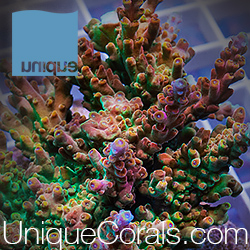
Mentoring is a rewarding endeavor that can help sustain the hobby and its community. Mentoring, per the Cambridge Dictionary, is the act or process of helping and giving advice to a younger or less experienced person, especially in a job or at school. This can be applied to any skill or practice. I have mentored new coworkers, high school robotics teams, and many fellow hobbyists and some LFS owners through the years. A little personal time can reward you with the following:
- New local friends you can relate to about this hobby.
- Backup reef caretakers, who understand your system and can watch your system while you are away
- Backup coral storage banks, so you can share your beloved coral collection to recover from emergency losses
- Knowledge that you have reduced the unnecessary loss of life by directing the correct caretaking practices
Reef Mentoring
No one person will know everything about any particular topic. The amount of information available today can be mind numbing for a beginner. The quality of this information can range from excellent and up to date to absolutely horrible advice. As a mentor, you can only talk about your personal experiences and offer advice on what is demonstrated in your system. As the old saying goes, “the proof is in the pudding.”
It can be as formal or informal as agreed upon. Just having a personal contact outside of the noisy forums and LFS provides a different perspective.
Mentee Benefits
The primary benefit is learning what NOT to do and how to apply the proper practices accurately. Every seasoned hobbyist can probably list every mistake they have done through the years. Mistakes will still happen and common issues still arise but knowing how to mitigate is the answer. Today, there is just too much information online. This hobby is complex. If you dive deep into it, reefing involves the understanding of biology, technology, chemistry, and process. Information needs to be filtered and summarized for better understanding to a beginner. The mentor can personalize that in a more laid back personal level and explain the experiences, good and bad, to the mentee.
History of Understanding
To know where we are, we must know where we came from. A seasoned mentor can explain how the hobby arrived to the current practices.
Some of the advancements in this hobby I personally experienced the last 25 years:
- Filtration Methods: External Canister, Under gravel filters, Jaubert plenums, Wet/Dry Filters, and Berlin Sumps with Live Rock, Ozone/UV, Web Filters
- Skimmer Design from Air driven wood air stones, Becket Injection, venturi, and needle wheel
- Fish Nutrition: Brine shrimp, flakes, vitamin supplements, use of nori/spirulina instead of land based plant matter, advanced pellets, larger variety of frozen foods, phytoplankton, liquid suspended foods, and DIY frozen foods
- Basic Water Parameter & Chemistry: Temperature, Salinity, pH, Alkalinity, Calcium, Magnesium, ORP
- Quarantining and Disease/Pest Treatments: Off the shelf to DIY concoctions and the processes determined to work
- Lighting: Fluorescent (T12 HO/VHO with Daylight/UV/Actinic, Power Compacts, T5), Metal Halides (6500K-20000K), LEDs (Blue/White to Full Spectrum)
- Controllers & Automated Testers: Bare bones switchable controllers/timers, manual titration testing, Advanced Networked Controllers, digital water testers, Alkalinity Monitor/Dosers, Automated Water Testers/Dosers
- Nutrient Control: Activated Carbon/GFO, Refugiums, Algae Turf Scrubbers, Lanthanum Chloride, Carbon Dosing (sugar, vodka, vinegar, biopellets), bacterial additives
- Coral Nutrition: Just lighting, frozen engineered crustaceans, powdered micro foods, amino acids
- Advanced Water Parameters: ICP testing, Trace element supplementation
- Aquaculture : lab culture, mariculture, commercial aquaculture, hobbyist level aquaculture
Find a Local Mentor
I recently picked up a new mentee just by talking to folks in the local fish store. If you are looking for a mentor, do not be afraid to talk to people. See what their tanks are like in person. Emulate their successful tanks. Most hobbyists are proud of their aquariums, will be eager to share their knowledge and show you what they do to achieve what they have. Now go out, talk to like minded hobbyists, join a club, and find a mentor! The online forums can only take you so far.









0 Comments